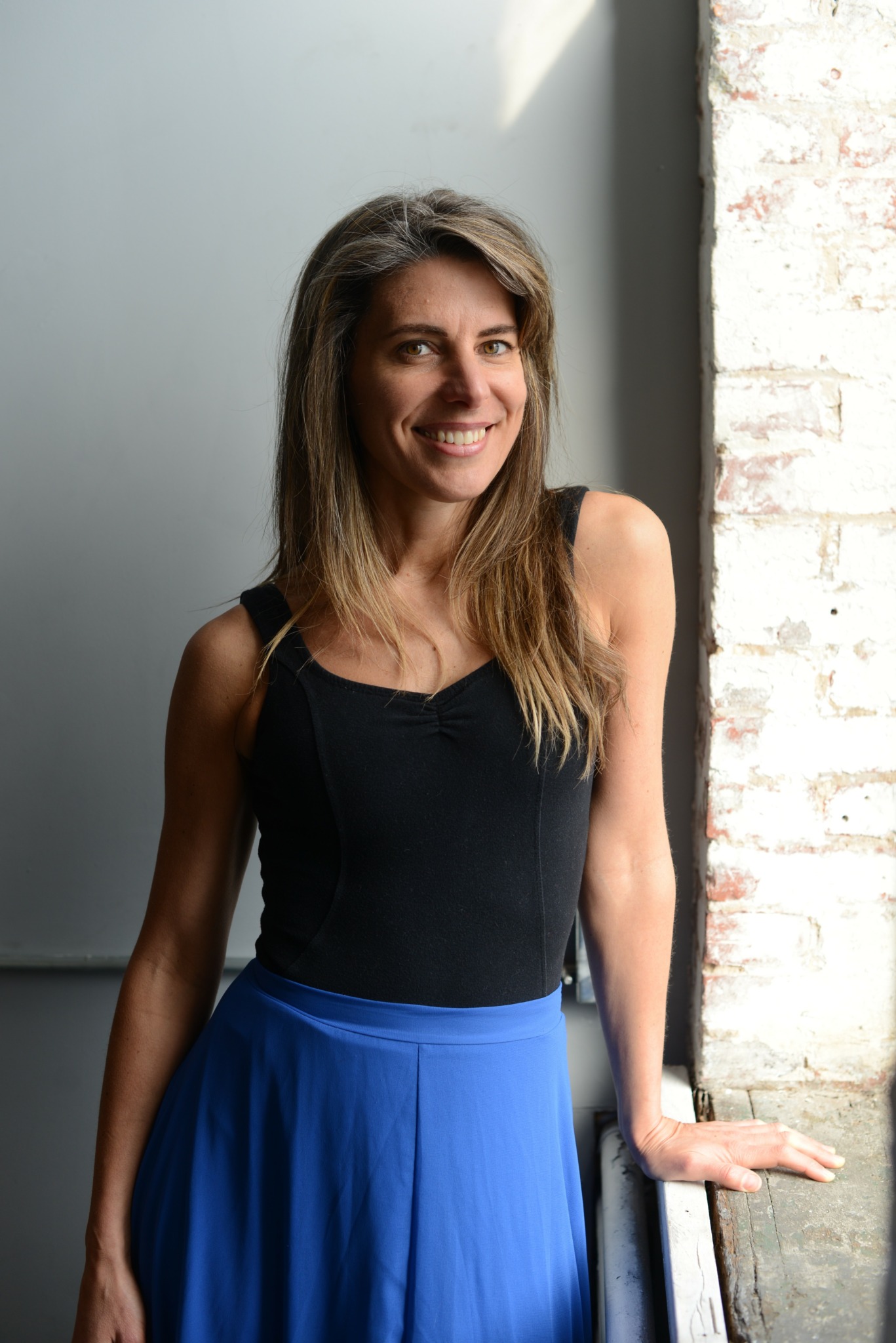Alright – so today we’ve got the honor of introducing you to Kristen Toedtman. We think you’ll enjoy our conversation, we’ve shared it below.
Kristen, thanks for joining us, excited to have you contributing your stories and insights. Can you talk to us about a project that’s meant a lot to you?
I have been fortunate to work on a songwriting project with two colleague-friends and the Downtown Women’s Center in Los Angeles each fall for the past several years. When I was first approached about it by our parent organization, Street Symphony, I had a very clear “a-ha” moment of complete alignment. In the landscape of my creative endeavors, this hit a perfect alignment of my values. Creating music, collaborating with others and elevating voices of those whose voices often go unheard. For 10 weeks, we meet weekly at the Downtown Women’s Center in the heart of Skid Row and work together to write a song with whomever shows up. We sing, we improvise, we do writing exercises and eventually the song comes to form. There are a few women who have come year after year and whom I can now call friends. The songs, the memories and the moments I have collected from this project continue to enrich my life.
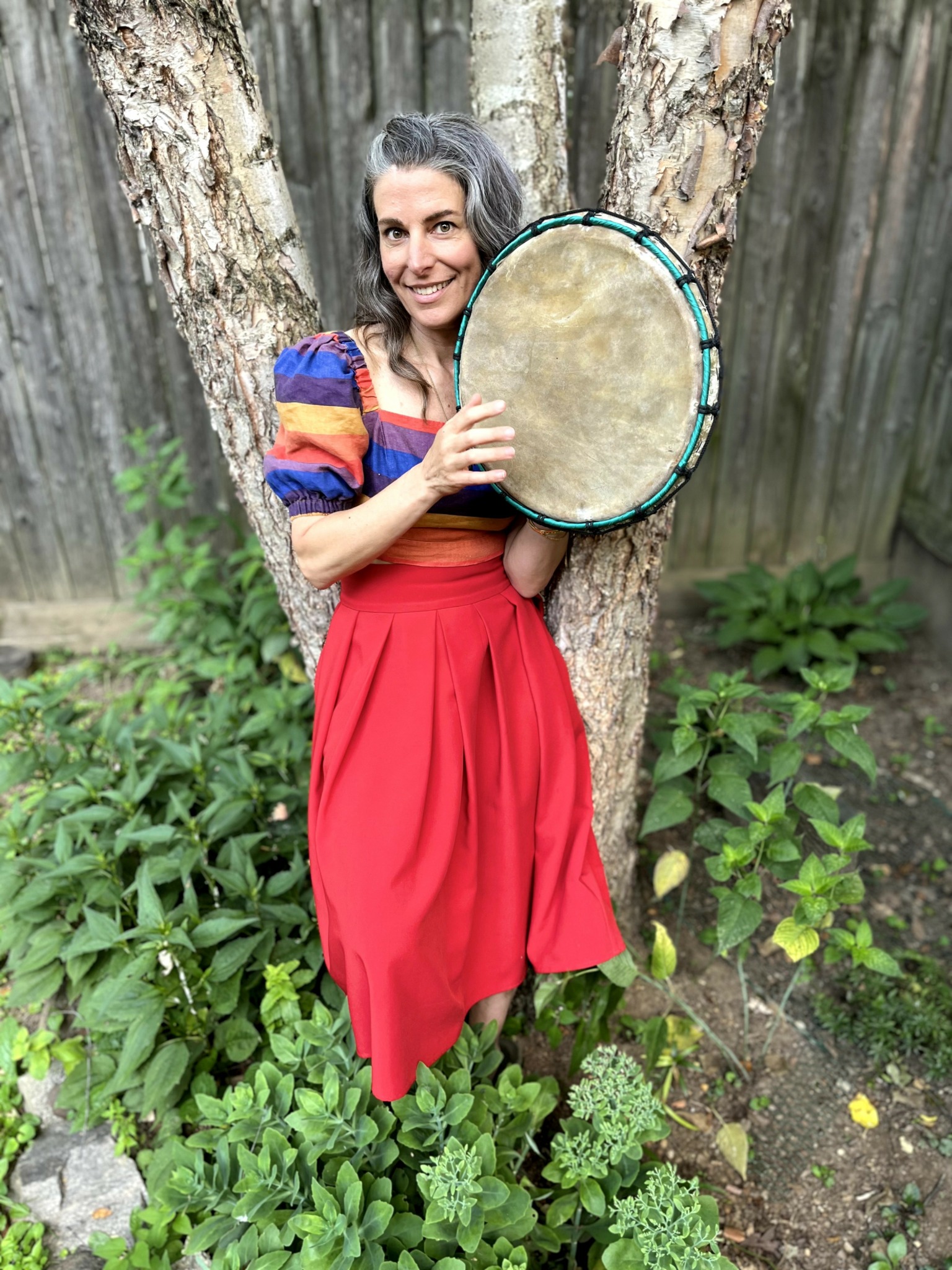
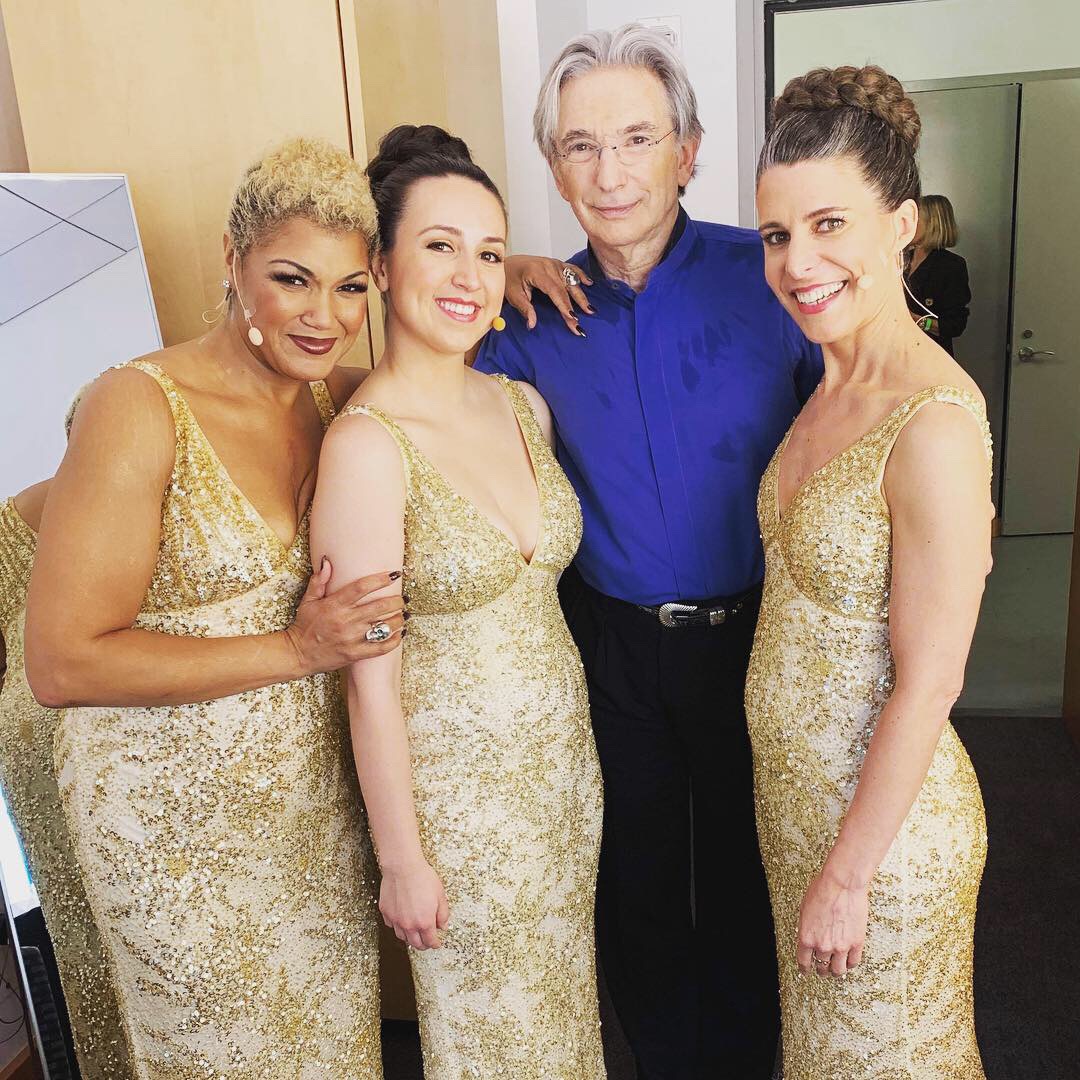
For folks who may not have read about you before, can you please tell our readers about yourself, how you got into your industry / business / discipline / craft etc, what type of products/services/creative works you provide, what problems you solve for your clients and/or what you think sets you apart from others. What are you most proud of and what are the main things you want potential clients/followers/fans to know about you/your brand/your work/ etc.
I’m so glad you asked.
I’m a singer, choir director, ceremonial musician, session singer, song carrier, songwriter and arranger, and have been a working musician for most of my adult life. And yet, if I may jump to your question about what I’m most proud of, it’s that I am also an amateur musician and lifelong student. I always found it interesting that to progress from “amateur” to professional, we lose the latin root of “amar,” to love. I never want to lose that. And I’m not just being cute (I am a professional: I enjoy getting paid for my work and skills).
But I am a lover of music. I love singing. I am passionate about making music and communicating with others through music. I love the human voice in all its infinite dimensions and I love what I do, and “what I do” can be divided into two categories: creating music and enabling others to create music.
Both in my own creation of music and in my guidance of others to sing, my philosophy is centered around tapping into the intuitive knowledge of our bodies and serving the moment and the music: to act as a vessel for source, spirit and sound. Since 2019, I’ve devoted a portion of my musical life to serving ceremonies of different types. I have decades of experience, singing in churches as a soloist, directing choirs, composing and improvising music to create the sonic space for worship, for grief and joy. I direct the flow and the creation of sacred space with my voice, with piano, guitar or harmonium and often with my original music. I’ve sung in churches and temples and various site-specific rituals and art installations. This, in turn, has influenced my continuing classical career. When asked, for example, to sing a John Adams piece with nonsense syllables and full orchestra, my body becomes the vessel for the music.
For much of my career on the music creation side, I am a hired gun – I’m handed a score for an upcoming concert or tour or recording session, I show up and bring a composer or director’s sonic vision to life. I love this work. My original expertise – what I studied through childhood and in conservatory – is interpreting music (I went to Indiana University and the Peabody Institute, earning a Bachelors and Masters in Vocal Performance). Learning the notes, the nuance, the technique needed to get out of the way and serve the song. This is a life-long study! I’ve sung with orchestras, premiered new works, sung on soundtracks (Frozen, Star Wars: The Rise of Skywalker, Big Hero 6, Minions & more) and sung music from all over the world in countless different languages with choirs and small vocal ensembles of amazing singers. I’ve toured Europe, North and Central America and recorded in the biggest recording studios in Los Angeles.
As a facilitator for others to find their voice with music, I have conducted choirs for decades. The more I do it, the more I learn. It is truly the kind of work that energizes me in the best way. Before the pandemic, I focussed on the Community Chorus of Peabody in Baltimore, growing the group to 70+ members, singing at Food Pantries, at City Hall and on stage with the Baltimore Symphony Orchestra. During lockdown, we continued on with about 40 members meeting weekly on Zoom and created some lovely virtual choir videos. Since the pandemic, I’ve been shifting away from traditional choirs and towards the current movement of incorporating singing with well-being (incorporating = embodying, to heal ourselves with our own voices). I offer workshops and songwriting classes at wellness centers, shelters for the unhoused and online through my website.
I’ve just begun a weekly drop-in Tune-Up you can find on my website (as of 2024). It’s a 60-minute all-levels vocal warm-up session. We begin with alignment, continue with vocal exercises and learn songs to incorporate both.
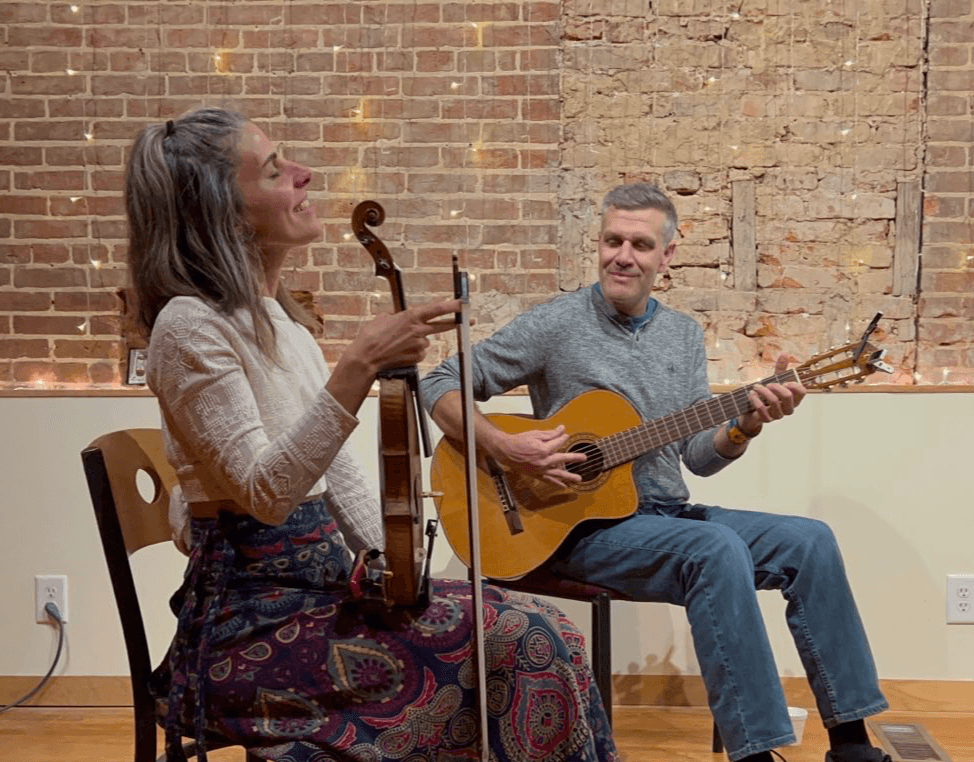
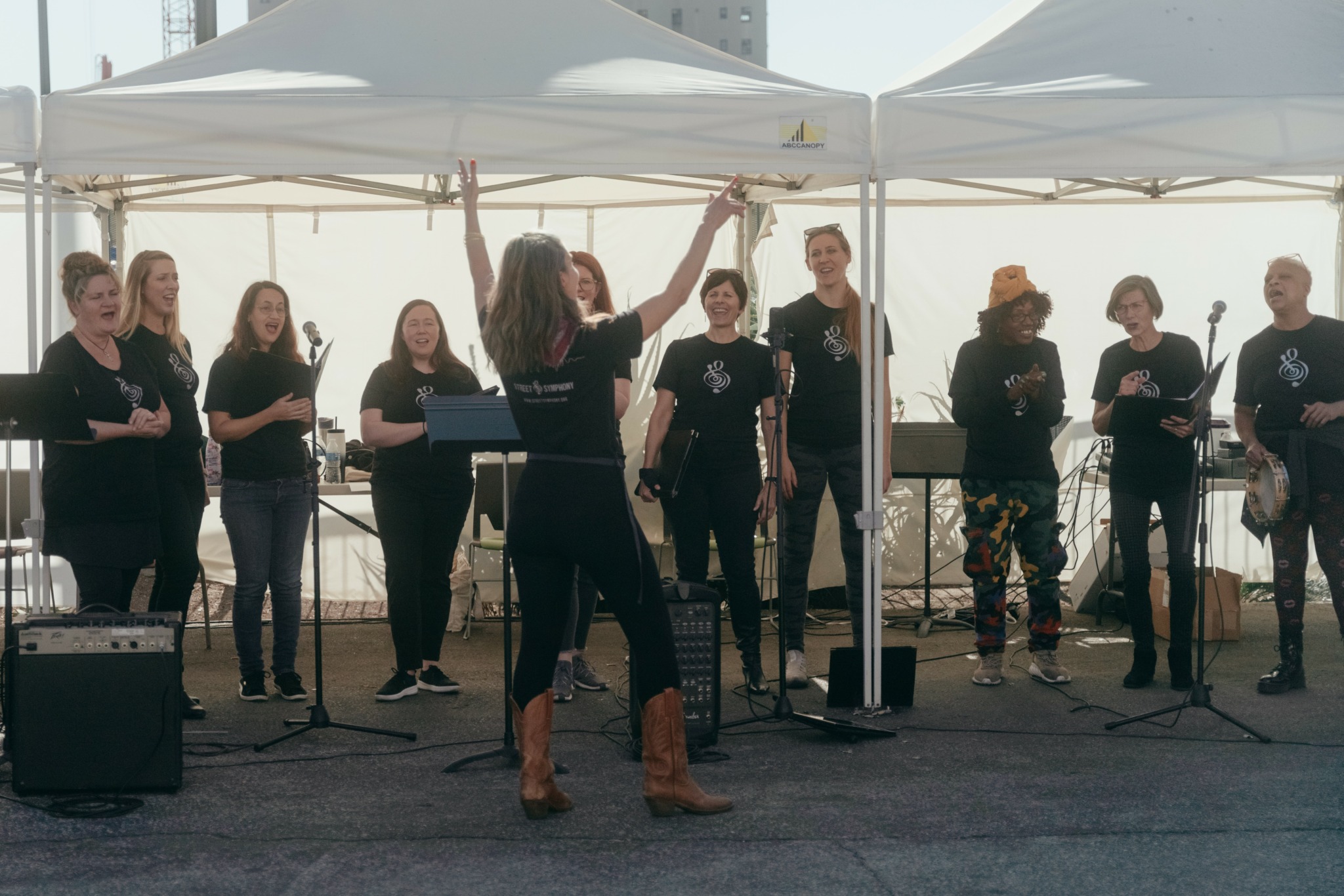
Is there a particular goal or mission driving your creative journey?
For much of our existence as humans, we all sang. It would have seemed absurd to say “I’m not a singer” when singing was simply something you did. At home, in churches and temples, in the fields, in the bars. I think what has happened in recent history is a trickle down effect of fewer singing households yielding fewer singing children. That, plus I’ve heard literally countless adults tell me that someone at some point in their childhood told them they couldn’t sing. [!!!] And yet, something’s going on right now. Maybe you’ve noticed it, too? It seems like many people are waking up to the fact that they’ve been stifling their musical and literal voice their whole life and feeling an urge to to sing, to create, and want to join the musical world.
I love to get people singing and exploring the wisdom their bodies hold. Which sounds woo-woo. And if you like woo-woo, go with it. Because we are walking miracles after all! However, imagine for a second if you had to learn the mechanics behind breathing, the coordination and balance required every second and for every act, from relaxed to strenuous. Notice your breath right now. You’ve been breathing on autopilot this whole time. I can sing a Call & Response with groups of the least “experienced” singers and they can invariably echo back sounds, pitches and timbres immediately, without thinking ‘lift the palate, stretch the vocal cords like so or lower the tongue.’ We just do it. And that fascinates me.
Now, I admit, what really gets me going is creating beautiful sound. And that requires listening. So once I get a group sounding and a little bit comfortable outside of their comfort zone, I’m pretty quickly tuning up their ears as well. The tone of a singing voice changes once they’re also activating their ears. If I’m honest, I want to hear singers who are also listening.
And isn’t that a formula for a better world, too?
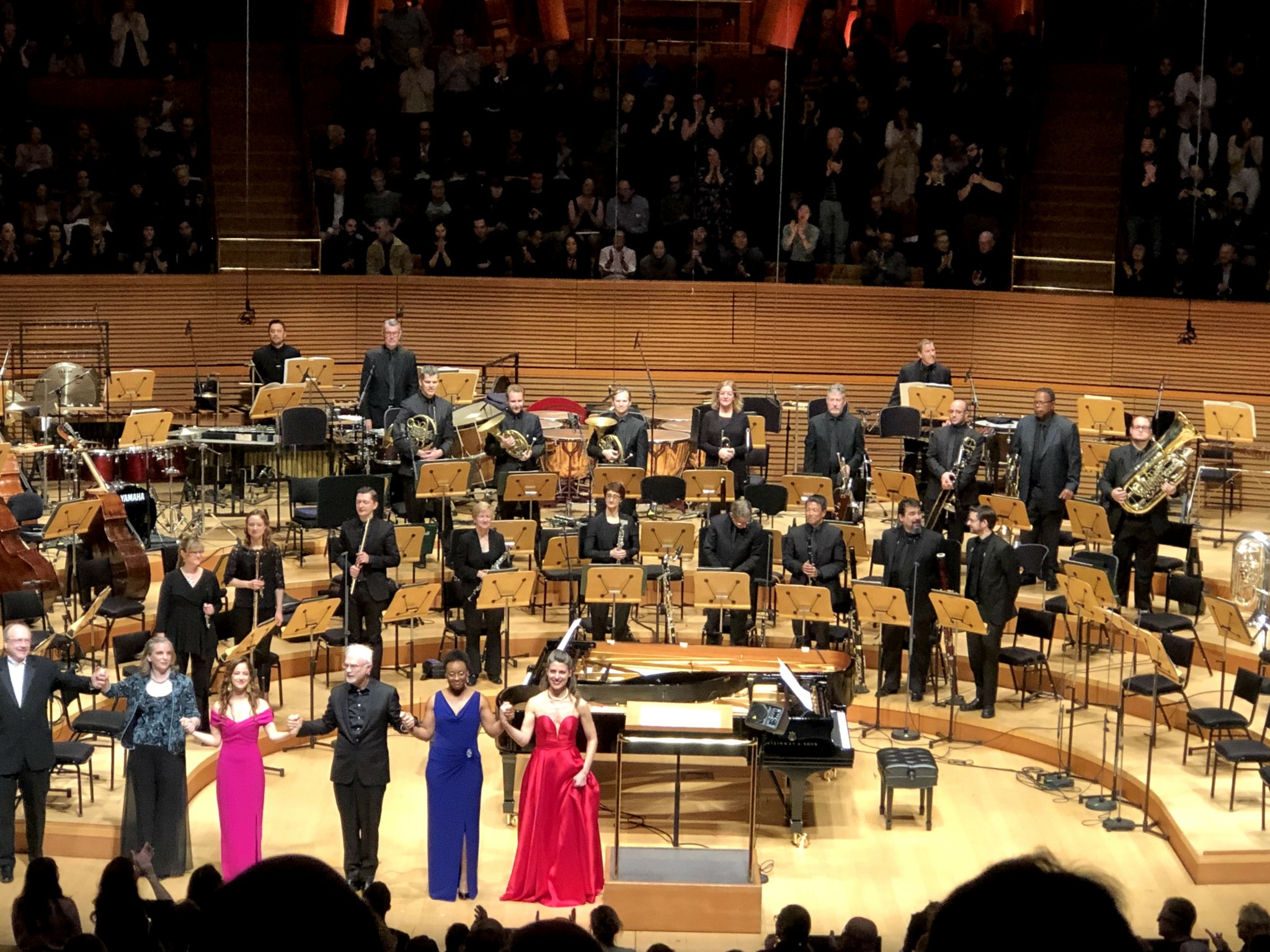
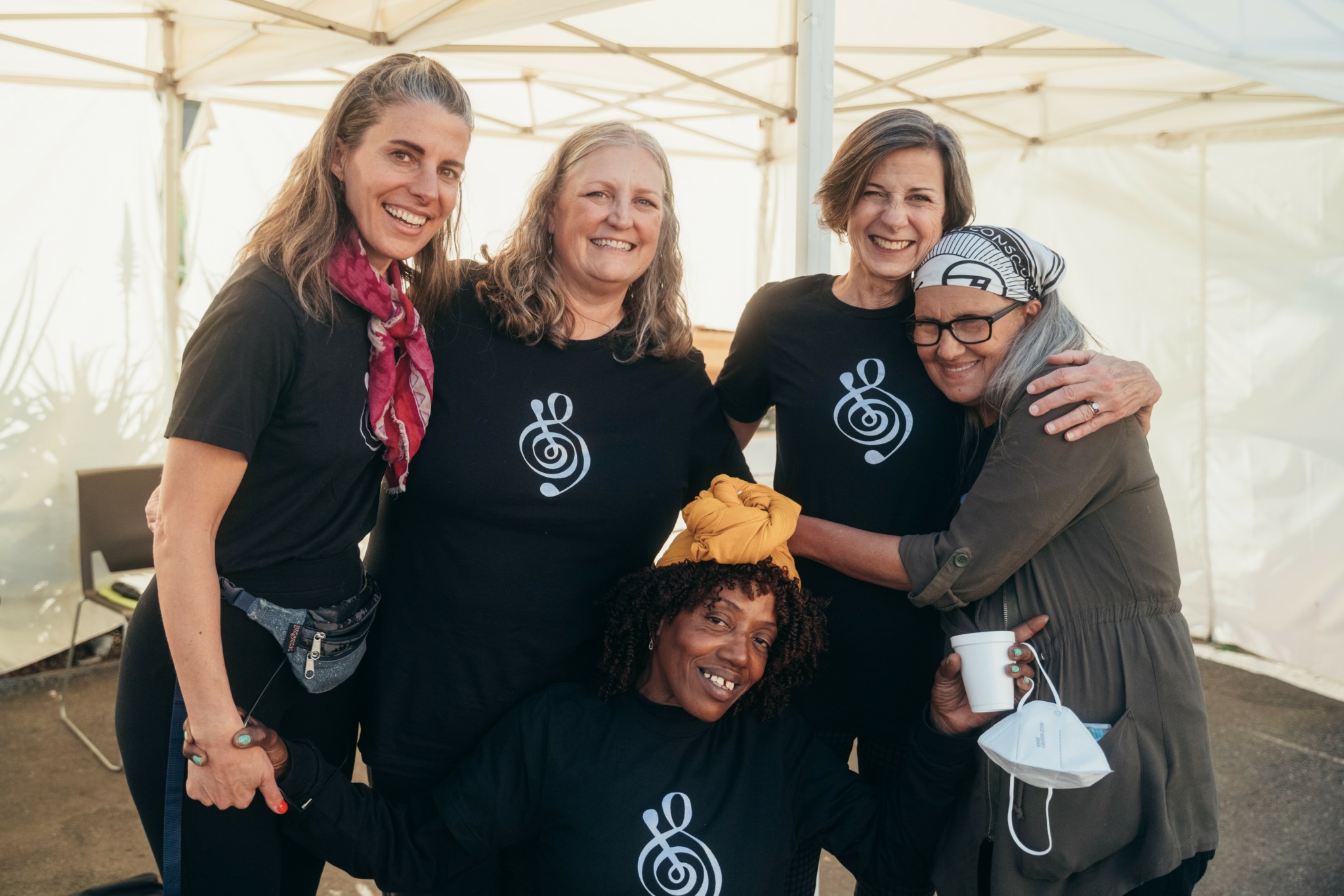
Let’s talk about resilience next – do you have a story you can share with us?
At the beginning of 2023, I was deep in my study of icaros. Icaros are songs typically channeled through shamans which carry medicine from nature and are sung, in unison, like a delightful chant. I’ve learned them from a teacher in Peru and carry them with me incorporating them into my life as companions and guides. They’re tiny gems often in Quechua or Spanish and we sing them sometimes for 30-40 minutes at a time. Like sacred geometry, I’ve been taught that they carry codes to help face challenges.
I had just sung my San Francisco Symphony debut and was in Los Angeles rehearsing music with the LA Master Chorale and LA Phil when I was mauled by someone else’s dog who attacked my face and actually took off a part of my nose. It was sudden and serious and fortunately my partner was with me. As he drove us to the hospital, I sang to him (Mai chiri riri…). In the emergency room, we sang together in Quechua (Noye noye si, warmi challay). I was able to use these icaros as tools, comforting, affirming, guiding and truly supporting me. When I learned I wouldn’t be singing in the concerts that weekend was the first time I cried.
In fact, I had to take much of the year in a forced sabbatical and I was wildly lucky that my voice was not harmed. Despite the accident and two very invasive surgeries, nothing held me back from singing. I believe there may have been one day I did not sing. My facial movement was compromised, however, and singing some forward vowels vibrated too intensely for my nose so I had to adjust and move most songs to lower keys and avoid certain words and avoid any higher chest voice. Because of that, I learned what face muscles I used and how/why. I had a rare experience of getting to learn about resonance in a very different way which I knew would help my teaching. So by the strength of my curiosity through this ordeal, I stayed fascinated. And I know that fascination helped my healing process. Once it was warm enough for my nose, I spent hours outside singing with the birds as springtime arrived and over the course of 6-8 months gradually brought my range a little higher and taught my new nose what being my nose was all about. The reëmergence into the world still continues and I am a stronger person and singer for it.
Contact Info:
- Website: http://www.kristentoedtman.com
- Instagram: @kteddles
- Facebook: https://www.facebook.com/kristentoedtmanmusic/
- Youtube: https://www.youtube.com/@ktoedtman
- SoundCloud: https://soundcloud.com/kristentoedtman
Image Credits
Britt Olsen-Ecker Chris Pumphrey [photo unknown] Sahffi Lynne Courtesy of Street Symphony Courtesy of Street Symphony Haydée Toedtman


